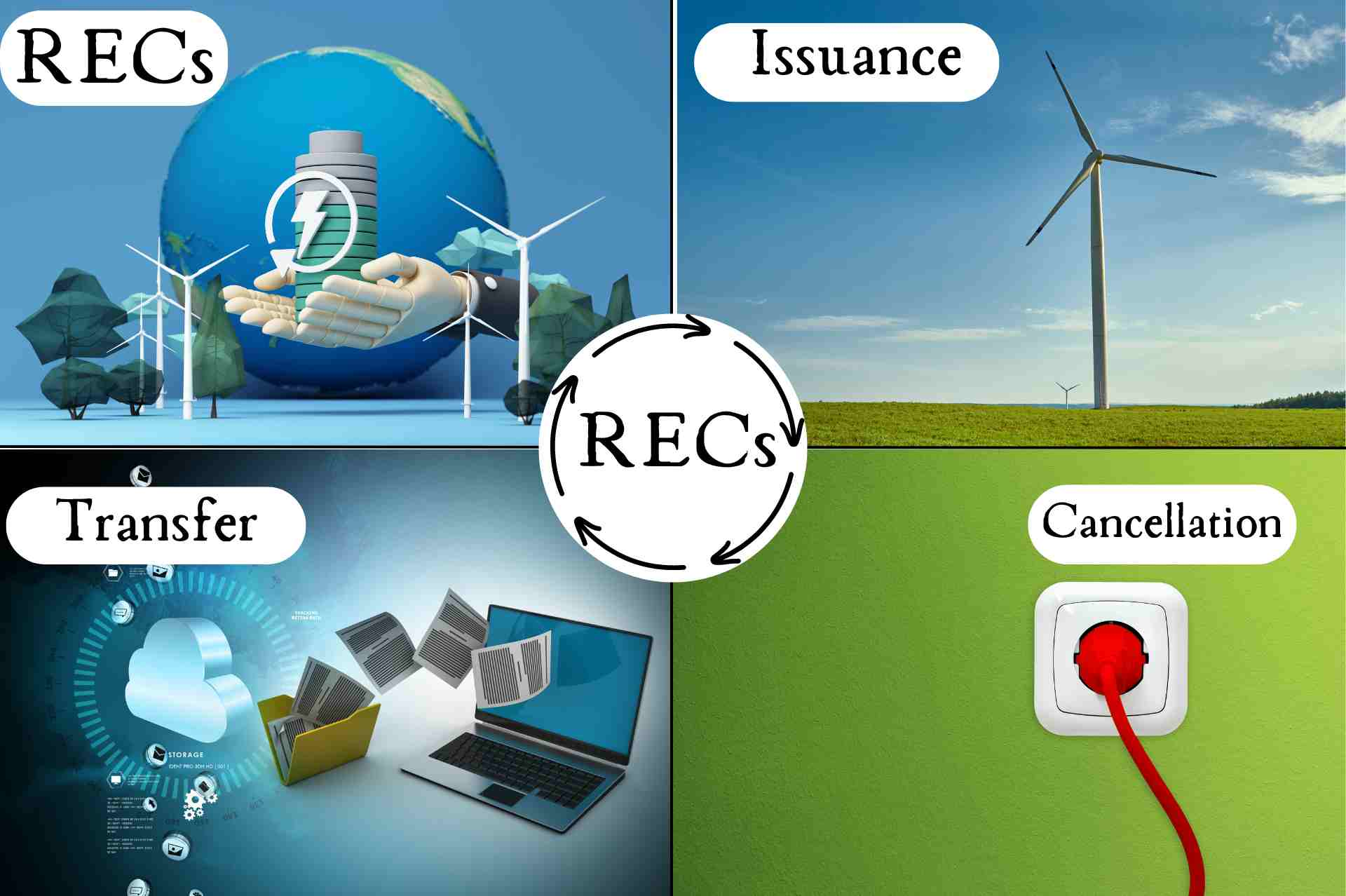Services
Understanding Renewable Energy Certificates
Renewable Energy Certificates (RECs) come in various forms, each serving unique roles in the energy market. Explore the types, benefits, and key details about RECs that support the global transition to renewable energy.
Certificate Attributes
Each REC includes specific attributes such as generation source, location, date, and technology type. Understanding these attributes helps stakeholders choose the right certificates to meet their sustainability goals.
Global REC Markets
Analyzing regional REC markets such as Europe, North America, and emerging markets in Asia and Latin America. Understanding the differences and similarities across these markets.
Issuance and Tracking
How certificates are issued, tracked, and retired to ensure transparency, prevent double-counting, and support renewable energy claims.
Corporate Use Cases
Examples of how corporations use RECs to meet renewable energy targets, report sustainability metrics, and enhance their green reputation.
Benefits of RECs
Explaining the environmental, economic, and social benefits of RECs, including funding new renewable projects, reducing carbon emissions, and supporting local energy communities.
Challenges and Criticisms
Addressing challenges such as additionality, price volatility, and complexity in choosing the right certificate type.

1. Issuance
- RECs are issued for every 1 MWh of renewable energy produced by a certified generator.
- Each REC includes attributes like the energy source, location, and generation date.
- This step verifies renewable energy production and enables monetization through REC sales.
Transfer
- RECs can be bought, sold, and traded among parties (e.g., producers, corporations).
- Transfers occur through registries that track ownership, ensuring transparency.
- RECs can be sold directly, through brokers, or bundled with physical electricity.
3. Retirement (Cancellation)
- Retiring a REC means it’s used and can no longer be traded.
- It allows the buyer to make renewable energy claims, meeting sustainability goals.
- Retirement ensures no double-counting, confirming that the energy’s benefits are claimed.
Transforming Sunlight into Sustainable Power
Energy Consulting
Expert advice on how to optimize energy usage and integrate solar solutions. Consultants assess energy needs, recommend system sizes, and provide information on potential savings and benefits.
Solar Energy Financing
Financial solutions to help customers afford solar energy systems. This may include loan options, leasing programs, and incentives to make solar energy more accessible and affordable.
Solar Battery Storage
Installation of battery storage systems that store excess solar energy for use when sunlight is not available. This enhances energy reliability and allows for greater self-sufficiency.

Our Team
Innovative Solar Team
Energize Now
Meet our experts in solar energy! Visit the team section to learn about our dedicated professionals.



